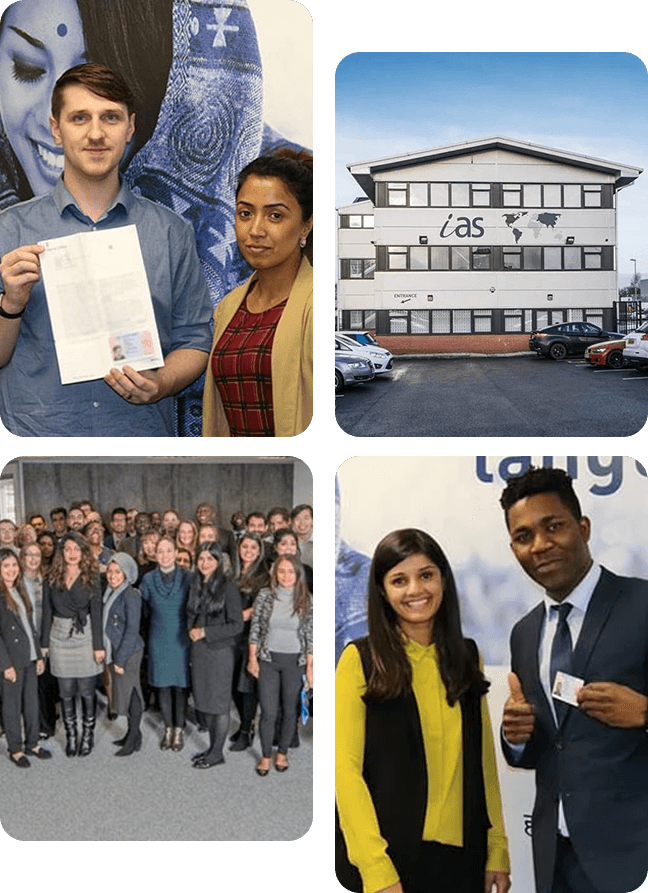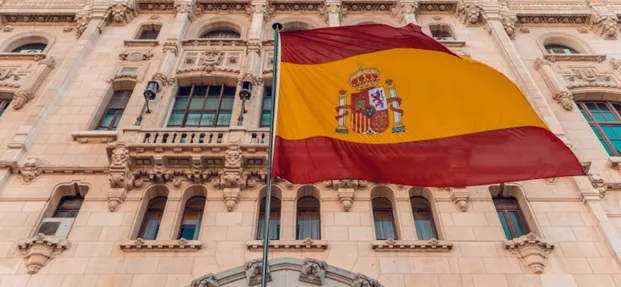What are the Best Practices for Nigerian Entrepreneurs to Get an Ireland Business Visa?
Nigerian entrepreneurs can move to Ireland on the Start-up Entrepreneur Visa if they meet the eligibility criteria. IAS provides comprehensive assistance through eligibility requirement checks, document preparation, visa applications, and concierge services. They can guide you through the process, ensuring you fulfill all the criteria for a successful application.
For more information about the Business Visa Ireland, the Ireland self-employed visa, or details about other services we offer, call us at +2342013306361, message us online, or visit our office at 42 Saka Tinubu, Victoria Island, Lagos.
Read our 1001 reviews
What Are the Key Tips for Nigerian Citizens Applying for an Irish Business Visa?
Here are some essential tips that can improve your chances of success in your visa application:
Write a Solid Business Proposal: This document is the cornerstone of your visa application. It should clearly outline your business activities, budget, income projections, target customers, and the potential benefits your business will bring to Ireland’s economy. It should also detail how your company plans to create employment opportunities in Ireland and enhance trade relations between Nigeria and Ireland.
Show Evidence of Financial Strength: You must prove you have enough funds to start a business in Ireland and cover your living expenses. This is to ensure you won’t be a burden to Ireland upon arrival. Grants, personal income, loans, savings, and venture capital are accepted proofs of financial means. You should be able to explain the source of any large deposits of money in your account.
Show Proof of Ties to Nigeria: Strong ties to Nigeria convince the immigration officers that you don’t intend to overstay. Proof of ties to Nigeria includes birth and marriage certificates to show you have a family, property deeds to show you have investments or tax reports of your business in Nigeria.
What Documents Do Nigerians Need to Apply for an Irish Business Visa?
Below are the documents you need to prove you are eligible for an Irish Start-Up Entrepreneur Programme (STEP):
- Business proposal.
- Last audited account of your business if you intend to relocate or open a branch of an existing business in Nigeria.
- Valid ECOWAS passport.
- Two recent passport photographs.
- Marriage certificate, if applying with your partner.
- Birth certificate, if applying with your children.
- 3 months Bank statement showing you have at least €50,000 for the business.
- Proof that the money can be transferred to Ireland and converted to Euros.
- Evidence showing the source of the money.
- Police Clearance Certificate from every country you have spent at least 6 months in the past 10 years to prove that you are free of any criminal conviction.
- Receipt of visa fee payment of €350.
Tips on Getting the Required Documents for Application
- Create a checklist of all the documents you need for the application. This helps you focus and ensures you do not miss any document.
- Start early to gather your documents. Some documents may take time to get such as certified and notarised copies of civil documents like marriage and birth certificates. It is advisable to have all your supporting documents handy before you start the application.
- Check that all your identity documents are up to date. Your passport should be valid for at least up to six months beyond your application submission date. If your passport validity is less than 6 months, you’ll need to get a new one from the Nigerian Immigration Service.
- Seek legal assistance from immigration consultants who are experts in Irish visa applications. It can be overwhelming trying to remember and gather all you need for the visa application, but an immigration expert can give you a document checklist and also assess the documents you provide for eligibility.
How Can Nigerian Applicants Prove Financial Stability for an Irish Business Visa?
To demonstrate financial stability during your application, you must have at least €50,000. The money can come from one or a combination of:
- Personal savings.
- Business loan.
- Venture Capital funding or Business Angel.
- Irish State Agency Grant.
You must prove the fund you are presenting will be used for the start-up and nothing else.
If you are using personal savings, you must present a letter from a bank controlled by the Central Bank of Ireland or Central Bank of Nigeria stating that such an amount of money is in an account bearing your name. The letter must be on the bank’s original letterhead. Your bank statement must cover 3 months before your application, and the last transaction on the account must not be more than 30 days from your application date.
If your bank cannot generate a bank statement, it can issue a letter to the Irish Embassy stating the amount of money in your account for the past 3 months before your application date. The letter must be on official letterhead and not older than 30 days at the time of application. A senior bank official must also sign it.
The letter must state that:
- The bank account is in your name.
- The bank is regulated by the Central Bank of Nigeria or the home regulator of the country where the account is domiciled.
- Your account has held a minimum of €50,000 for 3 months before writing the letter.
- The final credit balance at the point of issuing the letter.
If you are using venture capital/business angel, a grant from an Irish State Agency, or a business loan, you must present a letter from the bodies releasing the funds that confirm the following:
- The total money available for your business project.
- That you can use the money for your business project.
You can combine these sources to meet the visa’s financial requirements.
You must also prove that the money can be converted to Euros and transferred to Ireland for use. To do this, get a letter written on the official letterhead, dated and signed by a senior bank official, stating:
- That the account is in your name.
- The amount you can transfer.
- That the money can be transferred to Ireland
- That the bank will respond to any request regarding your bank statement when asked by the Irish Naturalisation and Immigration Service.
- That the bank is regulated by the Central Bank of Nigeria.
Tips on Ensuring Financial Documentation is Sufficient
- Be up to date with exchange rate information. This is particularly important if your bank account is in naira. Due to inflation and instability of the currency, the value of your money may change. Have a buffer in your account to cover for these fluctuations. The Irish Naturalisation and Immigration Service (INIS) will check your bank statement against the exchange rate of the day you submitted your application. Websites such as Oanda offer real-time exchange rates and you should always check before submitting your bank statement.
- You’ll need to highlight and explain unusual sums leaving or entering your account. So, ensure all business transactions passing through your account have well-detailed descriptions. This makes it easy to explain.
- When scanning and uploading your bank statement, ensure that it is legible. If you cannot read the details on the scanned copy, chances are that the immigration officer assessing your documents wouldn’t be able to read them too.
What Mistakes Should Nigerians Avoid When Applying for an Irish Business Visa?
Avoid these errors when applying for an Irish Business visa, as they can lead to visa delays or denials:
Inaccurate Completion of the Visa Application Form
It is not uncommon to find mistakes in visa application forms. These mistakes could be inputting the wrong date of birth, wrong order of name or attaching the wrong form at the wrong place.
To avoid this, it is necessary you take out enough time to look through your application. You can invite a trusted party or an immigration lawyer to go through what you have filled to ensure accuracy. The date of birth and the order of name on your application form should match the details on your passport and other documents. If your name arrangements on your passport, bank statement and birth certificates are wrong, you need to go to any high court close to you and get an affidavit for personal detail rearrangement.
A helpful tip to ensure correct uploads is by first scanning and saving all your documents on your personal computer with their relevant names. A best practice is to save documents in this format: Your Name_Document Name. For example, if your name is Akin Ojo and you want to save your passport, you can save as: Akin Ojo_Passport. This helps you upload the right document in the right space.
Insufficient Proof of Financial Capacity
The Irish Business visa is a capital-intensive visa. You must meet the minimum financial criteria and prove that your funding source is legitimate.
To avoid being rejected on the basis of finance, ensure the audited business account you intend to submit is not falsified and that it reflects the true financial capacity of your business. All documents issued by your bank must be original, on the official letterhead, dated and signed by authorised staff. Ensure also that the money in your account in naira is worth €50,000 on the day you submit your application.
Poor Business Proposal
Your business proposal must be compelling and detailed. Without professionalism and clarity of purpose in your business proposal, your application will not be approved.
To avoid being rejected due to a poor business proposal, use these samples to prepare yours. They are templates gathered by the INIS to guide you in writing your business proposal.
Inaccurate Presentation of Supporting Documents
Sometimes people forget to translate documents that were not issued originally in Engish language. This is an error. Again, some forget to notarise civil documents like birth, marriage or adoption certificates.
To avoid these errors, go through your documents and start the translation and notarisation process on time. This is one of the places where having an immigration lawyer handling your application is vital. They can facilitate the quick translation, certification and notarisation of the needed documents.
Omitting Supporting Documents
This is also a common mistake Nigerians make when applying for a visa. To avoid this, create a checklist and ensure you have all of the documents before starting your application.
Not Meeting the Visa Requirements
Do not apply for an Irish business visa if you do not meet the requirements. You will only end up spending time and money without accomplishing your goal. Comply with every visa requirement to avoid delays and rejections. If you are unsure about the Irish Business visa process, call our immigration solicitors at +2342013306361, message us online, or visit our office at 42 Saka Tinubu, Victoria Island, Lagos.
How Can Nigerian Entrepreneurs Strengthen Their Business Case for an Irish Business Visa?
Your business proposal is a major document that determines the fate of your application. Here are some tips on what to include in your business plan to demonstrate the potential economic benefits of your business to Ireland:
Executive Summary: In this proposal section, you can showcase your proposed business by detailing what you will do and why you think the business is viable. It should contain proof that Ireland has a market for your business. Mention also your marketing strategy.
Products and Services: Explain your services, detail your long-term targets, and how you intend to meet them.
Market Research: You must prove that you have conducted market analysis and developed a sales and promotion strategy. Add the price of your services or products. Include the profile of your competitors and state your advantage over them. Specify your income source and how the business will benefit Ireland’s economy.
Organisational Chart: Write out a clear structure of the business management. Also, mention machinery, equipment, the number of staff you’ll need to start, and how you will create at least 10 jobs in Ireland.
Financial Plan: Outline how your business intends to make €1 million in revenue within 3 years.
Funding Source and Allocation: Mention your funding source and how you intend to allocate the funds across various business sectors. Outline how much you have set aside for rent, furnishing, adverts, recruitment, salary, and research and development.
Key Assumptions: Outline some challenges you foresee and how you intend to mitigate those.
Appendices: Add details necessary to make a good case for yourself, such as your resume, testimonials, customers’ letter of intent, and company website or service page.
Your business proposal must be detailed and feasible. An evaluation committee of civil and public servants will review your business plan for feasibility.
Proof of Good Character
You must also prove to the Irish Embassy that you are of good character. This is done by providing a Police Character or Clearance Certificate from every country you have spent at least 6 months in the last 10 years. You can get a Police Character Certificate by visiting any State Criminal Investigation Department (CID) in Nigeria, along with a passport photograph and means of identification. It costs ₦40,000.
Screening reports from risk management companies like Control Risks, Deloitte, and McKinsey & Company are accepted as proof of good character.
If your proposal is approved, you’ll submit an affidavit attesting that you are of good character and have not been convicted of any criminal offence. This affidavit must be from an Irish-based and practising lawyer. Family members in the application aged 16 and above must also submit this affidavit.
What Specific Eligibility Criteria Must Nigerian Citizens Meet for an Irish Business Visa?
You must meet the following criteria before applying for an Irish Start-up Entrepreneur Programme:
- Have a clear criminal record.
- Be of good character.
- Have at least €50,000 for the proposed business. If you have business partners, they must show they each have at least €30,000 in addition to your €50,000.
- Have an innovative, detailed, and feasible business plan that can generate at least €1 million in 3 years.
- Have a business with high potential.
- Have a business that can create at least 10 jobs in Ireland.
- Have experienced management that can meet the proposed business goals.
- Prove you intend to set up your business according to the business plan.
- Run the business full-time without engaging in any other business or profession.
Business people offering retail, catering, and personal services are not eligible for this visa. Only businesses manufacturing or offering internationally traded services can apply.
Tips on How Nigerians Can Become Eligible for the Visa
Here are some tips on how to become eligible for the Irish Business Visa:
- Create a business idea that has a high potential. Your business should be in sectors like technology, IT services, manufacturing, pharmaceuticals or renewable energy. Focus on these sectors as they receive support from the Irish government.
- If you don’t have €50,000 for starting the business, consider applying for loans from Enterprise Ireland and Microfinace Ireland.
- If you have up to €30,000, you can collaborate with another founder who has €50,000 to become eligible for the visa.
- An immigration lawyer should review your business plan. At IAS, we have expert immigration lawyers well-versed in Irish immigration laws. They can review your business plan to ensure it meets the requirements for the visa.
- Showing proof that you have previously run a successful business will improve your chances of getting an approval.
How Can Nigerian Citizens Apply for the Irish Business Visa?
The application is in 2 stages. The first application is to the Evaluation Committee to approve your business proposal, and the second to the Irish Naturalisation and Immigration Service (INIS),
First Stage
- Write your business plan. Ensure you follow the guidelines above when writing the plan. Check the sample Irish business plan and create yours.
- Gather your supporting documents.
- Download, complete, and sign the STEP application form on the INIS website.
- Pay the €350 application fee. This fee also covers your family members. They do not need to pay a separate application fee. This fee is non-refundable, regardless of the outcome of your application. The payment must be made via electronic transfer. In the reference section, you must add: STEP—[PASSPORT NUMBER].
- Email your completed application form and supporting documents to [email protected]
The Evaluation Committee will review your proposal. They will ask for more details from you if needed and then recommend your application to the Minister of Justice. If your application is successful, you can proceed to the second stage.
If the evaluation committee rejects your application, you cannot appeal their decision or request a review. However, you can reapply. You will get an email from INIS outlining why the evaluation committee rejected your application.
Second Stage
- Send the required money to a bank account in Ireland controlled by the Central Bank of Ireland.
- Get the affidavit for you and your family members 16 and above.
You’ll be invited to apply for residency under the STEP visa. If approved, your residence permit will be issued, and you’ll be allowed to stay in Ireland and run the business for 2 years. You must purchase private health insurance and have no access to public benefits. The permit can be extended for 3 years if the business is still running and productive. After 5 years on the visa, you can apply for long-term residency in Ireland.
How Long Does It Take for Nigerian Applicants to Get an Irish Business Visa, and How Can Delays Be Avoided?
The evaluation committee assesses business plans on a quarterly basis. If you submit your application after the committee has sat for the quarter, it will be carried over to the next quarter.
After getting the green light from the evaluation committee, the Embassy will take 12 weeks to process your permit.
Tips on Avoiding Processing Time Delays
- Submit complete and accurate documents that show you meet all the visa criteria.
- Be strategic in the timing of your application submission. The Evaluation committee sits quarterly to review applications. Speak with our immigration advisors to know when is best to submit your application to avoid waiting too long for a response.
What Are Common Reasons for Rejection of Irish Business Visa Applications for Nigerians?
Some common reasons why your Irish Business visa application can be rejected are:
- You have incomplete or falsified documentation.
- Your birth, marriage or adoption certificates are not certified and authenticated.
- The information on your application cannot be verified by the Embassy.
- You did not meet the financial requirement for the visa.
Tips for Addressing Weaknesses in Your Application
- Ensure your documents are not incomplete or falsified. Create a document checklist and follow it before you submit your application as this can help you not to miss attaching any document.
- Certify and authenticate documents like the birth, marriage and adoption certificates before you start your application.
Approach your bank for proof of financial strength and ensure the bank statement they issue to you is on the official letterhead and signed by the relevant bank official. Your statement must cover 3 months before the date you submit your application. Your account balance must be at least €50,000.
What Are the Benefits of Setting up a Business in Ireland?
Below are the advantages of starting a business in Ireland as a foreigner:
Access to World-class Talent: Ireland has a young and educated workforce. You can employ skilled migrants in your business. Global companies like Dell, Facebook, Google, etc., have set up branches in Ireland to benefit from the workforce.
Favourable Tax Regime: The government reduced the tax rate for businesses to attract more investors. Ireland has the lowest corporate tax rate in the world for active business at 12.5%. Your business can get up to 30% tax credit for research and development expenditures after 3 years. You won’t be taxed If your company patents a product or has an intellectual property right over an invention. Any income earned outside of Ireland is tax-free, but you must pay the 12.5% rate if you spend up to 6 months in a year in Ireland.
Government Support: The Irish government set up Enterprise Ireland (EI)to help Irish businesses grow, develop, and compete in the global market. EI partners with Irish businesspeople to start, develop, and upscale their businesses. EI also assists in winning export sales. You can visit the EI website if you need help scaling up your business in Ireland.
Friendly Business Environment: Ireland has flexible laws for businesses. The Business Environment ranking of countries best suited for business placed Ireland as 15th in the world and 6th in Europe in ease of doing business from a list of 82 countries.
Conditions Attached to the Visa
You must meet the following conditions to be allowed continual stay in Ireland on this visa:
- Your business continues running.
- Your business must pass the viability assessment conducted by the evaluation committee at the end of the 2 years.
- You have not committed any criminal offence in Ireland or elsewhere while on the visa.
Even after visa approval, you can lose your permit if:
- The INIS discovered that a part of your application was fraudulent.
- You committed a criminal offence either in Ireland or abroad.
- Your business is failing.
Bringing Family on an Ireland Business Visa in Ireland
Your family can travel to Ireland with you on a Business Visa. Family here refers to your spouse or partner and children less than 18 years old. You can include children up to 24 years old if they still depend on you financially and are still in school.
- When applying with your spouse, you must present a legal marriage certificate showing that you were married before you applied.
- When applying with a partner you’re not married to, you must show that the de facto or common-law relationship has been ongoing for at least 2 years. You must also prove that you have lived together for 2 years.
- When applying with children, you must present each child’s birth or adoption certificate. You cannot apply with your child if they are married or in a common law/de facto relationship.
Dual Citizenship
Ireland allows dual citizenship. You don’t need to renounce your Nigerian citizenship to apply. You may be eligible for citizenship after spending 5 years on the STEP Visa.
Criteria
- Be at least 18 years old.
- Prove you’re Nigerian by presenting your ECOWAS passport.
- Have residence permits covering all your years in Ireland.
- Show you have been living in Ireland legally for 5 years. You must have spent a whole year in Ireland before your application. You can be absent from the country for up to 70 days in that full year.
- Prove you’ll retain Ireland as your resident.
- Prove you have not committed any criminal offence in your years in Ireland.
Required Documents
- Completed, signed, and dated application form available at the website of the Irish Naturalisation and Immigration Service.
- Irish Resident Permit covering every year of residency in Ireland.
- Bank statement, rental contract, or property deed bearing your address. Mention all the addresses you have lived in.
- Statutory declaration to prove you know what you are getting into.
- Proof of application fee payment.
- Valid ECOWAS passport.
Application Steps
Irish citizenship applications can be submitted online or by post. To apply for citizenship online, visit the Department of Justice’s website. Complete the application form and send it with the supporting documents to [email protected].
Nigerians applying via post must email [email protected] for the application form. Submit the visa fee payment receipt, supporting documents, and the completed application form to:
Department of Justice Office
Rosanna Road
Tipperary Town
Tipperary
E34 N566
Ireland.
The application will cost €175 and take 19 months to process. If your application is approved, you’ll pay €950 for the citizenship ceremony.
How Can IAS Help Nigerian Citizens Obtain an Irish Business Visa?
At Immigration Advice Service, we offer complete immigration support to Nigerians who want to apply for the Ireland Start-up Entrepreneur Programme. We guide you through the stages of the application process to ensure success. Below are our services:
Visa Application Support and Guidance: Our team comprises expert immigration lawyers who are well-versed in Irish immigration laws. They offer support during your visa application process. The process starts with a consultation, where we assess your eligibility and suggest visas that fit your profile. Next, we will ensure you get the supporting documents to prove your eligibility. We help you complete the necessary forms and submit the application. Our attorneys will track and follow up on your application if the processing time gets longer than usual.
Business Immigration Expertise At IAS, you have access to an experienced team with a deep understanding of the Irish business landscape. They can assist in crafting a solid business plan that will impress the evaluation committee. We ensure your business plan is detailed, realistic, and shows promise.
Legal Representation: As your legal representatives, we communicate with the Irish Embassy in case of delays or provide more information on your application if necessary.
Concierge Services: We map your immigration journey, partnering with you from the start of your application until the day you enter Ireland. IAS has a concierge service that can move you and your family from Nigeria to Ireland. You don’t have to worry about accommodation searches or means of transporting your properties, as our concierge service handles all of that.
For more information about what we do and how we can handle your Ireland visa application, call us at 23413438882, message us online, or visit our office at 42 Saka Tinubu, Victoria Island, Lagos.
Table of Contents
Table of Contents will appear here.Table of Contents
Table of Contents will appear here.Legal Disclaimer
The information provided is for general informational purposes only and does not constitute legal advice. While we make every effort to ensure accuracy, the law may change, and the information may not reflect the most current legal developments. No warranty is given regarding the accuracy or completeness of the information, and we do not accept liability in such cases. We recommend consulting with a qualified lawyer at Immigration Advice Service before making any decisions based on the content provided.
Services we Provide
Frequently Asked Questions
Under the Start-up Entrepreneur Programme, you can move to Ireland and start a business. To qualify for this visa, you must show you have a start-up capital of at least €50,000, a viable business idea, and a clear criminal record.
Legal assistance from professionals can improve your chances when applying for an Ireland Business visa by guiding you through the application process. Professionals like the ones we have at Immigration Advice Service are experienced in Irish immigration laws. They ensure you meet the visa criteria, have a suitable business plan, and avoid the common mistakes others make during the Irish visa application process.
Ireland does not pay entrepreneurs to start a business. However, under the Start Up Refunds for Entrepreneurs Scheme (SURE), you may be eligible to get up to 41% of the income tax you paid for 6 years.

























